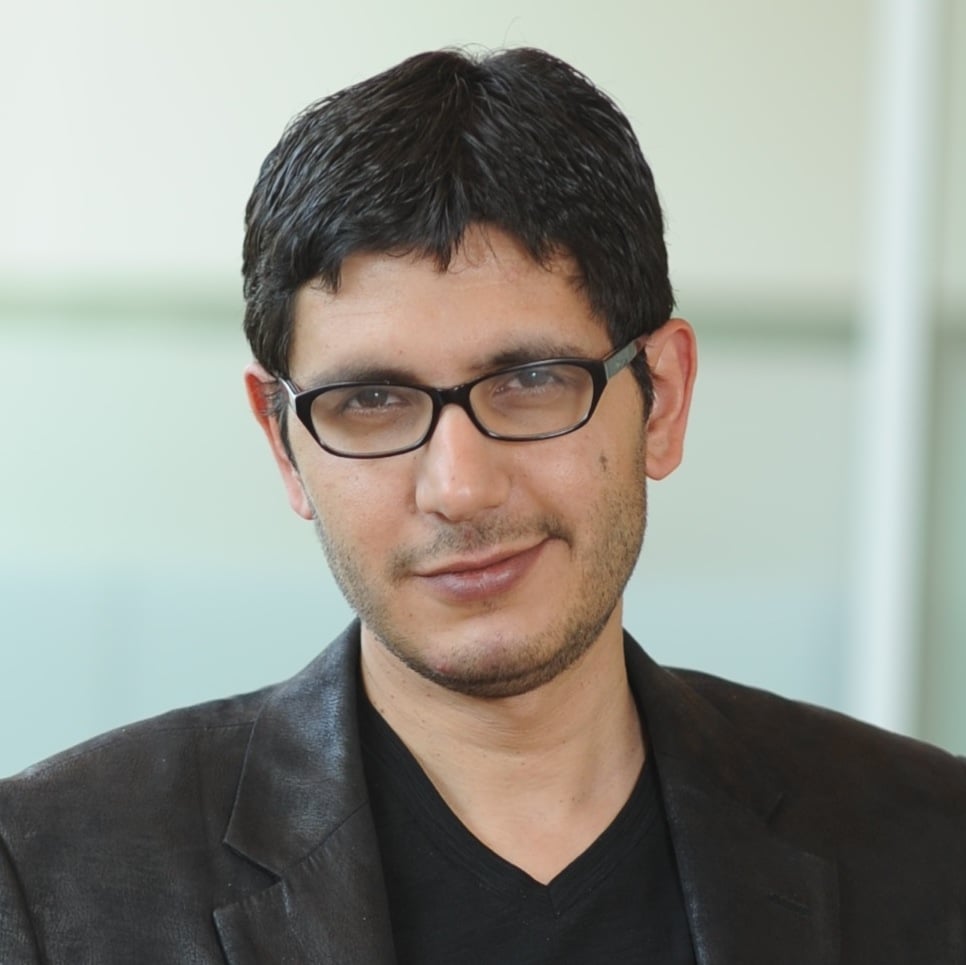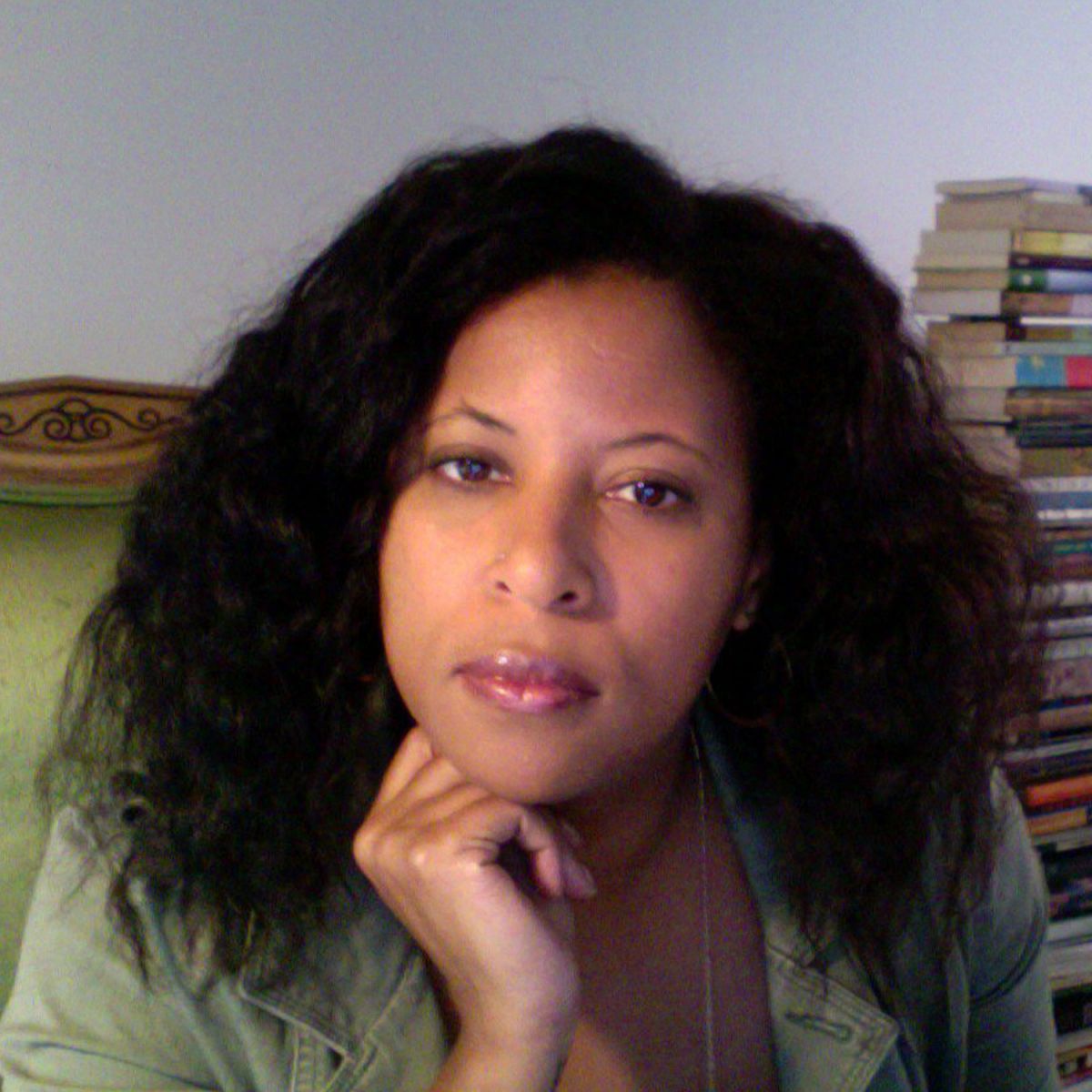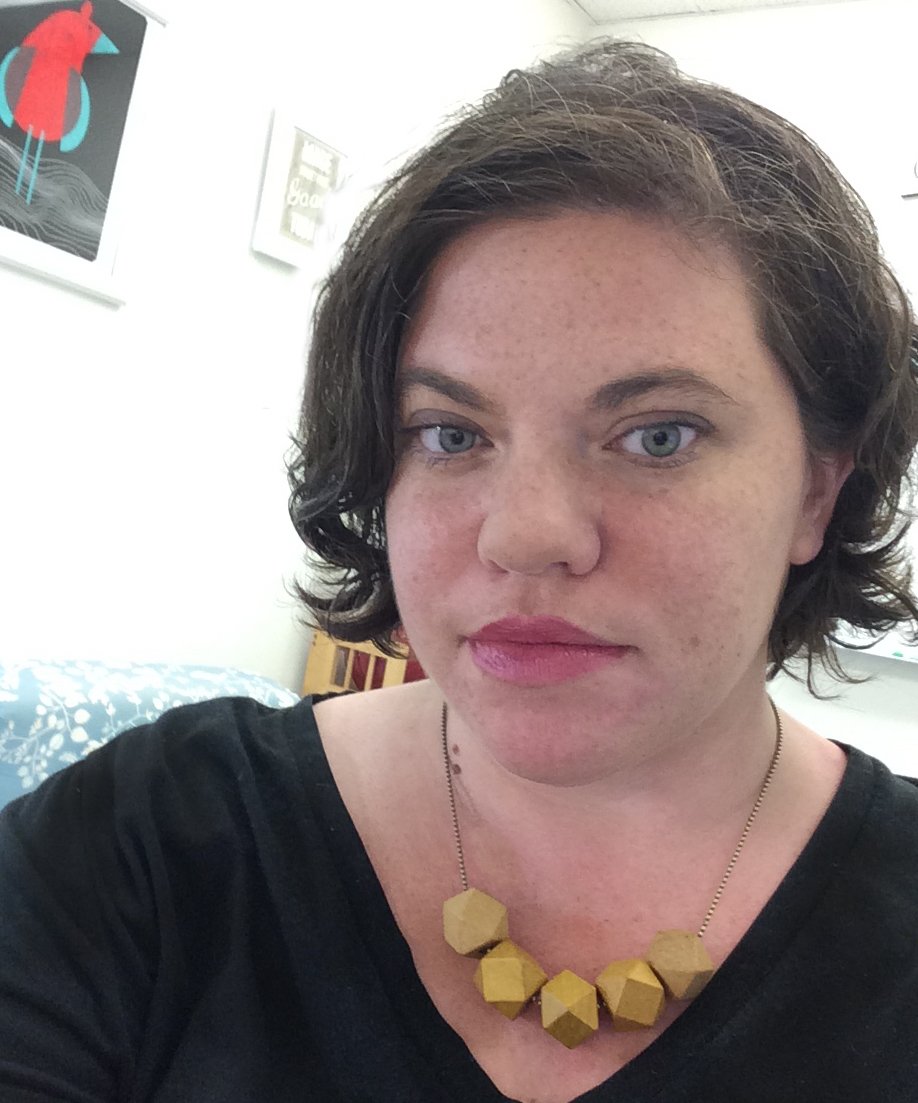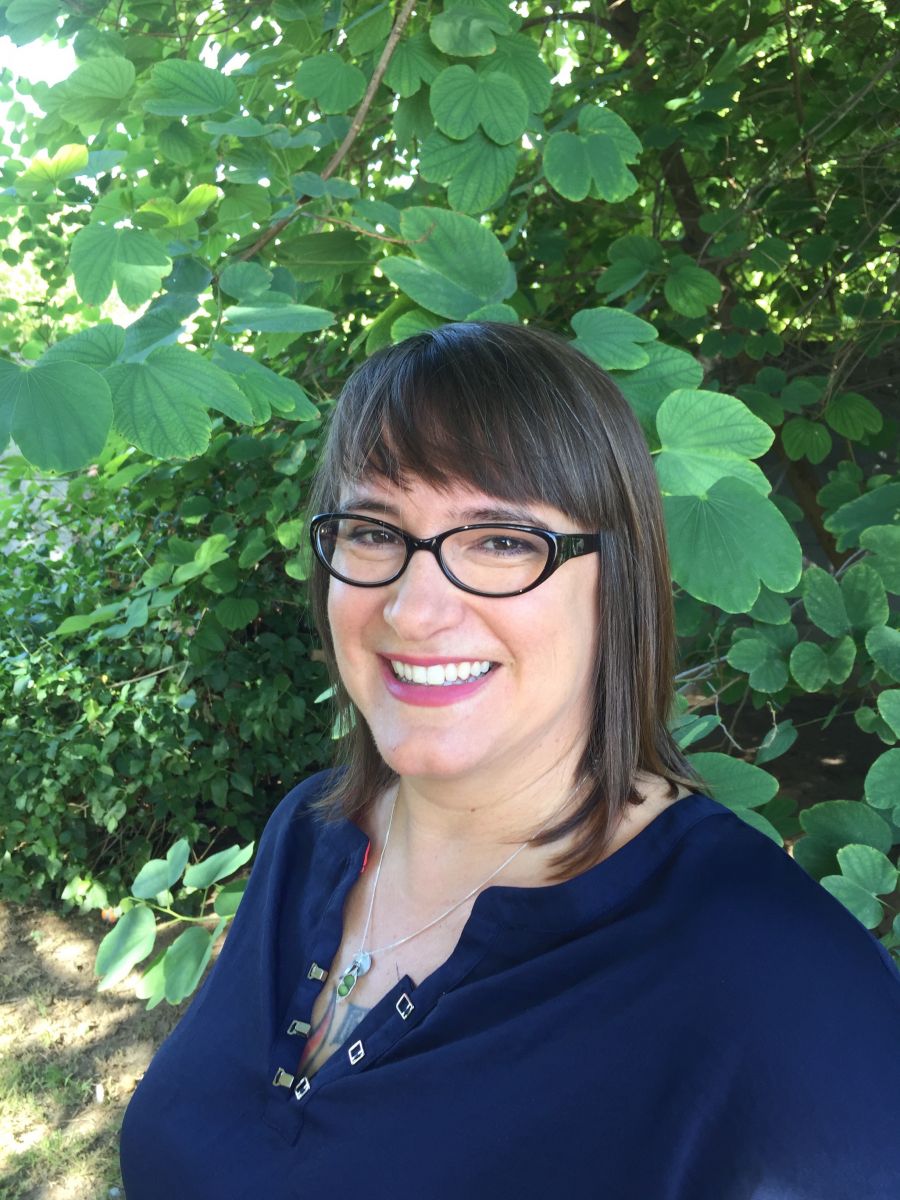Saint Vincent School of Humanities and Fine Arts 2017 Art Contest
The digital humanities take supported a remarkable diversity of pedagogy, scholarship and service pursued by a diverse group of leaders who are shaping the field's values and priorities. Within Digital Learning here showcases the contributions of five rise stars of the digital humanities: Alex Gil, Lauren Klein, Marisa Parham, Miriam Posner and Jacqueline Wernimont. While no pick can represent the full scope of a field, these scholars correspond the emergent and promising work inside digital humanities.
"These scholars demonstrate again and again the hope of digital technologies for exploring the most crucial, disquisitional questions in the humanities," said Kathleen Fitzpatrick, who until recently was associate executive manager and managing director of scholarly communication at the Modern Language Association.
"Their piece of work asks us to remember about the construction of race, gender, grade, sexuality and nation through representations and absences in the cultural archive, examining that archive both in shut detail and at massive scale, and using new forms of scholarly production and collaboration to describe others into the project as well," said Fitzpatrick, now managing director of digital humanities and a professor of English at Michigan State University. "Their work shows the all-time of the digital humanities: digital and critical, inclusive and continued."
Inclusivity can be measured in many ways, including diversity of practitioners, subject area surface area specialization, roles and institutions. These rising stars include individuals who take been historically marginalized within the university including women and people of color; traverse disciplinary boundaries of literature, motion-picture show studies, blackness studies, communications, media and information studies; and piece of work from both alt-ac and traditional tenure-track positions at public inquiry, liberal arts and Ivy League institutions.
Matthew K. Aureate, associate professor of English and digital humanities at the Graduate Center, City University of New York, and creator of the Debates in the Digital Humanities serial, situates that institutional diversity in the context of the field: "Digital humanities work increasingly extends beyond institutional types and institutional spaces. That this grouping of scholars represents faculty at a diverse range of public and private institutions, including a liberal arts college and a prominent engineering schoolhouse, and that it includes scholars working in libraries and alt-ac roles, is emblematic of the next moving ridge of digital humanities research, teaching, and participatory activity."
These rising stars are pioneering new approaches to the digital humanities that are innovative, rigorous and well prepared to meet the challenges of the moment.
 Alex Gil
Alex Gil
digital scholarship coordinator
Columbia University libraries
Gil is an alt-air-conditioning practitioner and global collaborator, roles which inform his advancement for minimal computing, a motility he co-founded with Jentery Sayers, associate professor at Academy of Victoria, too equally his work in Global Outlook::Digital Humanities with Élika Ortega, Roopika Risam and others.
Shaped by his travels throughout the Global South, minimal computing eschews technological excesses to render digital humanities more than broadly attainable, such as Ed, "a digital platform for minimal editions."
"I've admired Alex'southward energy and imagination since he was one of our standout graduate fellows at the [University of Virginia] Library Scholars' Lab, working on visualizations of textual variation in Aimé Césaire," said Bethany Nowviskie, director of the Digital Library Federation at Council for Library and Information Resource. "It has been a real pleasure to watch his interest in applying DH methods to his own research questions deepen into service to others -- and in a very wide, global context."
Gil'southward artistic minimalism inflects his piece of work at Columbia, where he leads the [electronic mail protected], a library "tech-calorie-free innovation space" focused on collaboration with faculty and students. "Library professionals have been at the forefront of our efforts to nurture intersections for digital scholarship to shine at Columbia," Gil said. He also leads with Dennis Tenen and Manan Ahmed Columbia's xpmethod group, a inquiry cluster based at the studio with stakeholders across the university.
In his alt-ac function, Gil also must make time to publish his own scholarship. "Though I take to skin away time for my individual research from my collaborative responsibilities, I notice nosotros practice better justice to the ii conditions of digital and scholarship when nosotros practice both," he said.
"Gil entangles retention work with critical technical practice equally an intellectual and activist endeavor," said Sayers. "In this spirit, he follows Aimé Césaire, 'gardez-vous de vous croiser les bras en l'mental attitude stérile du spectateur,' " which translates roughly to don't cantankerous your arms in the sterile attitude of the spectator.
Gil values the capaciousness of digital humanities as a ways to international cooperation. "DH helps to combine people to create new curricula," he explained. "Now that institutions are moving beyond introductions to more avant-garde topics within DH, you lot run across the field splinter into specializations. I hope, though, we go along the common footing."
*****
 Lauren Klein
Lauren Klein
banana professor in the school of literature, media and advice
director of the Digital Humanities Lab
Georgia Establish of Technology
How can you practice digital humanities at an engineering schoolhouse? Klein models how to both practice digital humanities and cultivate a wide interest in the humanities. Working at a large public research institution, Klein founded the DH Lab to create meaningful enquiry opportunities for students.
"Students tend to come in with computational questions, and it'due south my job to introduce them to humanistic ones," she explains. While her undergraduates are eager to perform portfolio-worthy technical inquiry, Klein also brings students to the annual ADHO conference, where they present on humanities work.
Klein's ain scholarship deploys data visualization in conjunction with literary and critical techniques, calling attention to people and stories that might otherwise be disregarded. Janet Murray, associate dean for inquiry and faculty affairs, observed, "Lauren'south work is among the nearly sophisticated technically and critically of those practicing digital humanities."
In add-on to visualizing the culinary labor of the enslaved men and women who cooked for Thomas Jefferson, Klein'due south most contempo work, The Shape of History, completed with her students, excavates forgotten historical visualization schemes.
"Lauren is a brilliant scholar, a skilled researcher, a careful editor and generous collaborator," explained Gold. "I wanted to edit Debates in the Digital Humanities with her because she is independent-minded, fair, empathetic and wise; she has a bully sense of where the field is and where information technology is heading."
Klein and Gold are uniquely equipped to shape digital humanities through Debates, i of the field's pre-eminent publications. "I see my part as helping to clarify and amplify the perspectives that our writers each bring to the book," said Klein. "The field tin only gain by placing people in conversation."
Klein hopes these various practitioners will apply digital humanities to facilitate collaboration. "I think we will see a continuation of the specialization and sophistication that has characterized the nigh exemplary recent work in the field," she noted. "But I'd hate to run into that come up along with additional barriers. We'll just need more than ways of facilitating conversation, collaboration and credit every bit the field continues to abound."
*****
 Marisa Parham
Marisa Parham
professor of English
managing director of Immersive Realities Lab for the Humanities
faculty diversity and inclusion officeholder
Amherst College
Parham has developed an inclusive fashion of digital humanities tailored to her liberal arts campus. "Marisa is committed to finding ways for people outside the field to enter it," said Rhonda Cobham-Sander, chair of blackness studies at Amherst. "Her projects brand space for humanities students who have never worked with digital tools, techy types who have never considered how their interests intersect with problems of race and representation, as well as senior kinesthesia members, like me, for whom digital approaches are new and sometimes overwhelming."
In leading the 5 College Digital Humanities program and now the Immersive Realities Lab for the Humanities, Parham has worked to lower barriers to both the digital humanities and black studies, which she synthesizes in her work with the "black digital" -- an understanding of digital as a figuration for the African-American experience. She's working on two interwoven projects, Black Haunts in the Anthropocene, because ecology as it surfaces in blackness texts, and African-American Lifeworlds and the Cyberspace of Things, examining how applied science serves equally both practice and metaphor.
"Dr. Parham has been at the forefront of efforts to bring a more diverse set of critically engaged scholarly voices to issues in digital humanities," observed Angel David Nieves, presidential visiting associate professor at Yale University. "Her voice has been a disquisitional clarion call in reshaping debates within digital humanities and in the field of black/Africana studies."
Regarding the future of those debates, Parham stressed the need for continued access and inclusion.
"There's a lot of talk amidst DH-ers most this moment as an opportunity to change how we engage, disseminate and produce bookish work, from our work equally teachers to our work as cultivators of institutional practices and norms," said Parham. "The challenge is how to make certain more people can thrive today, while also parlaying the lessons we're learning nearly institutional growth and shift to encourage the accessibility of future formations, whatever they may be."
*****
 Miriam Posner
Miriam Posner
assistant professor of data studies and digital humanities
Academy of California, Los Angeles
For five years, Posner has served as one of the leading practitioners of the digital humanities working from an alt-ac perch. Coordinating UCLA'southward digital humanities program, she worked closely with students to create projects like early African-American cinema, Origin of the Species and the Getty Provenance Index, the latter of which earned her students a Sotheby's Institute of Art Enquiry Honor.
"In my alt-ac job, I was lucky to accept a lot of decision-making ability and breadth to define my own goals," said Posner. "Having said that, alt-air conditioning jobs often come with some distinct structural limitations." (Posner described those challenges at greater length in an essay for Within Higher Ed.)
Her recent promotion to banana professor of information studies and digital humanities may redress those limitations and enable her to commit more time to collaboration and scholarship. Much of Posner's work lies at the nexus of data studies and humanistic inquiry. Her study of data in the global supply chain draws upon software, platform and cultural studies. Her data trouble projection reckons with the meaning and implications of "data-driven" humanities scholarship.
"I'thou interested in materialist feminist piece of work that takes critical race theory seriously. Many of the conventions of data visualization and information modeling assume a 'neutrality' that we know depends on a totalizing, imperialist view of the world," said Posner.
"One of Miriam Posner'southward insights was that rather than endeavour to derive data from humanities works or practices, one could take existing information -- with all its flaws and limits best-selling -- and ask humanities questions of it," explained Johanna Drucker, Breslauer professor of Bibliographical studies in the department of information studies.
Posner anticipates greater specialization across the field she has helped to shape, but also that digital humanities volition persist as an epistemological meeting space: "While a lot of us are asking questions that are specific to our own subjects, we're likewise even so request, 'OK, just what does this mean? What's the correct epistemological approach to computing and the humanities?' I think as long every bit nosotros're still deciding this, DH volition go along as a field."
*****
 Jacqueline Wernimont
Jacqueline Wernimont
assistant professor of English and digital humanities
manager of IHR Nexus Lab and Man Security Collab
Arizona Land University
Wernimont has long done transdisciplinary piece of work. As an undergraduate, she couldn't choose betwixt molecular biological science and English literature, so she majored in both. Today she builds and supports communities that reach even further: "No unmarried one of usa tin exercise the work we need lone -- nosotros are ameliorate together."
Wernimont is charting a new course for the Nexus Lab as a co-op, a community-owned space where scholars, artists and activists share their expertise, tools and time.
"Jacqueline Wernimont is 1 of the foremost figures internationally who see that the way forward for DH -- and for the humanities generally -- lies in bringing together the deep noesis of culture and how it works with digital tools that amplify the effect of that knowledge," observed her dean, George Justice. "Jacque was central to pulling together people … in order to bring [the Humanities, Arts, Science and Engineering science Alliance and Collaboratory] to ASU, tightening efforts here while too creating collaborations betwixt ASU and other universities."
Afterwards successfully shepherding ASU's proposal to co-host HASTAC, Wernimont now co-leads the national, public-facing scholarly network.
"I could not be more excited to have a co-manager and could not be more excited that it is Jacque," explained Cathy Davidson. "She is ane of the greatest networkers I know, always connecting not simply ideas but people. Information technology is inspiring to work with her."
Even while supporting virtual networks like HASTAC and FemTechNet, Wernimont is quick to admit the dangers of life online. Working with the Global Security Initiative and the Center for Solutions to Online Violence, she's reframing conversations about cybersecurity to include the lived experiences of individuals and communities, peculiarly the near vulnerable.
"Wernimont is 1 of the most artistic kinesthesia members working in the digital humanities today; she is best known for collaborating with activists, artists, security experts, policy makers and victims of online harassment and cultural erasure," said Elizabeth Losh, associate professor of American studies and English language at the College of William & Mary.
"I am invested in interrogating structures of injustice and inequality," said Wernimont. "My hope for DH is that nosotros'll come to recollect of it every bit an space where anti-racist, feminist work is highly valued."
Volition Fenton is the Elizabeth R. Moran Fellow at the American Philosophical Guild and an educational technology columnist at PC Magazine.
Source: https://www.insidehighered.com/digital-learning/article/2017/08/02/rising-stars-digital-humanities
0 Response to "Saint Vincent School of Humanities and Fine Arts 2017 Art Contest"
Enregistrer un commentaire